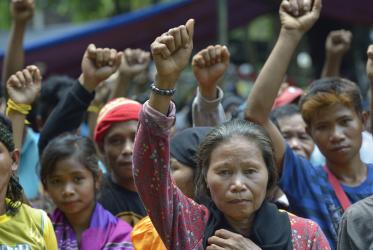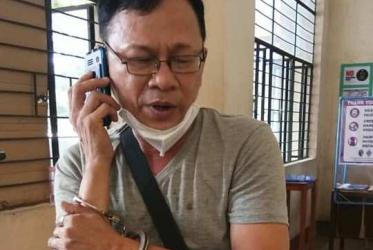Displaying 1 - 20 of 54
WCC organises event on “The Human Rights Situation in the Philippines”
18 September 2019
WCC condemns massacre of farmers in Philippines
12 April 2019
Le COE condamne le massacre de fermiers aux Philippines
12 April 2019
Interfaith Rainforest Initiative expands
12 February 2019
All pilgrim routes lead to COP24
11 December 2018










